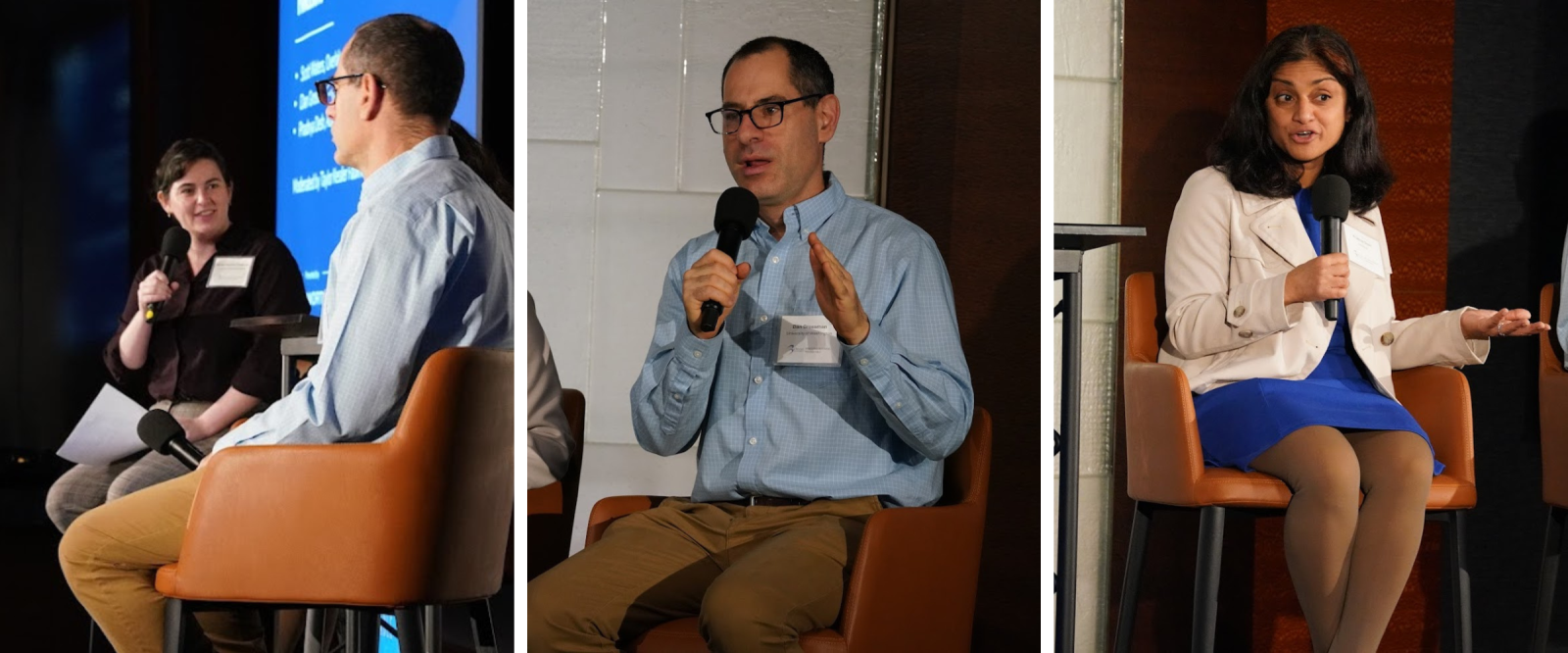AI impacts raise questions, concerns at November session of EBRT program
The November session of our Executive Business Roundtable program, or EBRT, turned all eyes to AI this last week as experts in academia, law, and tech joined us to chat about the proliferation of its use and what to expect within the workforce.
Two of our speakers hailed from UW — Professor Dan Grossman and lecturer Taylor Kessler Faulkner — and the other from her own AI-based company, Pradnya Desh and Advocat AI. Scott Waters, Chief Information and Technology Officer for Overlake Medical Center & Clinics, was also supposed to join us for the discussion, but ended up not being able to make it. (Keep your eyes peeled for a future Chamber event centered around AI, as we assure you, the discussion of the intersection between healthcare and AI is riveting, to say the least!)
We'll keep most of the convo under wraps, as EBRT is our only “off-the-record” program, but here were a few key takeaways:
- Panelists described practical but uneven adoption. For some, AI is now present in nearly every task, and for others, it is an occasional accelerator when the work is clearly defined.
- AI is changing both what and how universities teach. In the short term, some assessments are returning to in-person formats. Over the longer term, curricula are evolving to emphasize reasoning, processes, and graduates who are comfortable working with modern tools.
- We should treat AI as a tool that levels up search, image creation and data work, not an automatic replacement for professional judgment. During the convo, a practical rule of thumb emerged: Use AI to propose and accelerate, and require humans to decide and sign off.


Executive Business Roundtable is sponsored by ...

